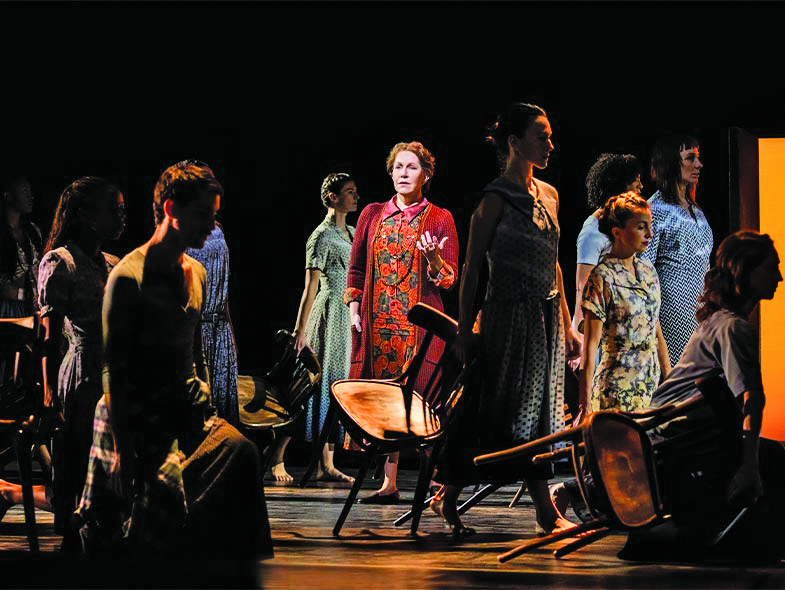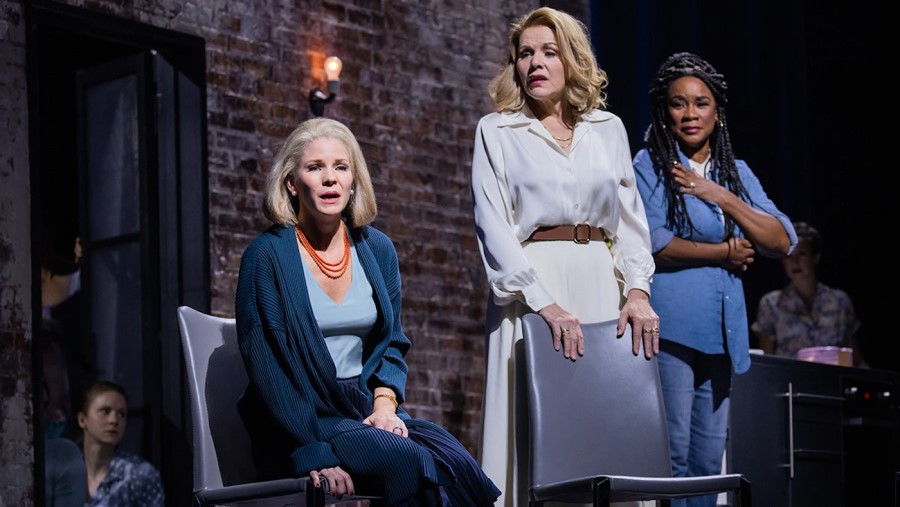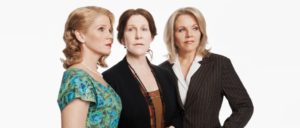Michael Cunningham isn’t particularly interested in faithful adaptations of his work.
His Pulitzer Prize-winning novel The Hours, which was turned into an acclaimed film by Stephen Daldry, has now become a major new production in the current season of New York’s Metropolitan Opera. It will be simulcast live at the Wellfleet Harbor Actors Theater on Saturday, Dec. 10.
As was the case with the film, Cunningham didn’t have anything to do with the Met’s adaptation. “I wanted them to feel entirely free to do whatever they wanted to do with the opera,” he told the Independent. “Part of the fun is seeing where somebody else will take the story. I don’t ever feel like the book is some kind of holy text that must not be messed with.”

This may be partly because the novel itself is an imaginative retelling of Virginia Woolf’s novel Mrs. Dalloway. The book traces a single day in the lives of three women, whose experiences in different places and eras of the 20th century ultimately — and indelibly — converge.
There is Virginia Woolf in 1923, hunkered down behind closed doors in the countryside outside London to write Mrs. Dalloway. There is Laura Brown in 1949, who has found respite from the monotony of life as a wife and mother in Los Angeles by reading Woolf’s novel. Some 50 years later, Clarissa Vaughan is planning a party in Manhattan for her poet friend Richard, who is dying of AIDS — and who lovingly refers to her as “Mrs. Dalloway.” Clarissa’s story subtly mirrors that of Woolf’s novel, and not only because the two protagonists have the same first name.
As the hours unfurl, it becomes clear how interwoven the three women’s lives really are. And on a formal level, Cunningham’s prose itself is a pastiche of Woolf’s style: a winding, intricate syntax that evokes the ceaseless undulation of water.
The opera, which premiered on Nov. 22, was composed by Kevin Puts with a libretto by Greg Pierce. Phelim McDermott directed the production, and the Met’s music director Yannick Nézet-Séguin conducts.

Soprano Renée Fleming stars as Clarissa Vaughan after a five-year absence from the Met’s stage. Soprano Kelli O’Hara sings the role of Laura Brown in her third appearance at the Met. And mezzo-soprano Joyce DiDonato plays Woolf.
When Cunningham was approached by the Met in 2017, he says, he was just as surprised as he had been in 2002 when Paramount optioned his book for a film adaptation starring Meryl Streep, Julianne Moore, and Nicole Kidman, who won an Oscar for her portrayal of Woolf. The film was memorably scored by Philip Glass.
“The movie was a surprise,” said Cunningham. “And even after the movie came out, did I think it would be an opera one day? When I wrote the novel, I just thought it would march with whatever dignity it could muster to the remainders table.”
But the novel is now a modern-day classic, revered for its delicate renderings of its protagonists’ inner lives. (After our interview, Cunningham was headed to the Netherlands to see a nonmusical stage adaption of The Hours at the Internationaal Theater Amsterdam.)
Naturally, as the book is transformed in different mediums, the fabric of the story modulates, too. In the novel and film, the three women’s stories happen in sequence, only occasionally leaking into one another’s spaces. But the operatic form allows for simultaneity and unity.
That is what drew composer Kevin Puts to the story when he first conceived the idea. “I thought about what you could do with opera that was not possible in a film or a book, which was that you could present the three stories simultaneously,” he told the Independent.
Puts, who won a Pulitzer himself in 2012 for his opera Silent Night, says he was inspired by the music of Aaron Copland and Samuel Barber. The melodic score of The Hours also has hints of ’90s pop. Motifs marking the passing of time recur: the measured striking of a clock, the steady rhythm of the second hand. “There is always a sense of time being a theme,” Puts says.
The opera at first creates three distinct musical characters. “I wanted to establish a certain kind of music that went with each character,” says Puts. “I hoped to have music that you could hear and identify as Virginia’s music, or Clarissa’s aria.”
Virginia’s music has baroque elements, with climbing harmonic progressions that Puts says he hopes evokes Woolfian prose. Clarissa’s music is wholly American and modern, while Laura’s is redolent of a “postwar studio band era of music,” he says.
The melodies gradually begin to blur. “You’ll hear the music of one character in the environment of another,” Puts says. “I have them sing duets, and eventually a trio, to share the same musical space.”
At the premiere, Cunningham says, he was particularly moved by these scenes. “There is a moment when Woolf is writing the novel while Laura Brown is reading it, and they do this beautiful duet across the decades,” he says. “It was a fabulous way of establishing their interiority. You just can’t do simultaneity in prose.”
Despite the ambitious scale of the production and the all-star cast, The Hours has gotten mixed reviews. In the New York Times, Zachary Woolfe described it as “painfully pretty, relentlessly stirring,” and in the Washington Post Michael Andor Brodeur called it “both overstuffed and undertold.” But Variety’s Daniel D’Addario saw it as a “stunning triumph for the Met,” and George Grella in the New York Classical Review found it to have reached “genuine and considerable emotional depths.” Most seem to agree that Fleming’s Clarissa Vaughan is overshadowed by a knockout performance by DiDonato as Woolf.
Cunningham says he prefers to stay away from the reviews. He savored the emotional resonance of seeing the opera for the first time. “It felt like one minute I was in my studio, thinking of what would happen next in the novel, and in the next minute, I’m seeing a production of it at the Met,” he says. “It’s really a beautiful and significant work.”

No matter the form — or the critical responses — Cunningham feels like he is bearing witness to a resurrection each time he experiences another version of his story.
“It’s a little bit like if you knew somebody who had died and they came back in another body,” he says. “The essence of the person is there, even though the flesh is different.”
The Hours Reincarnated
The event: Live simulcast of the Metropolitan Opera’s production, adapted from Michael Cunningham’s Pulitzer Prize-winning novel
The time: Saturday, Dec. 10, 12:55 p.m.
The place: Wellfleet Harbor Actors Theater, 2357 Route 6
The cost: $17.50-29.50 at what.org



